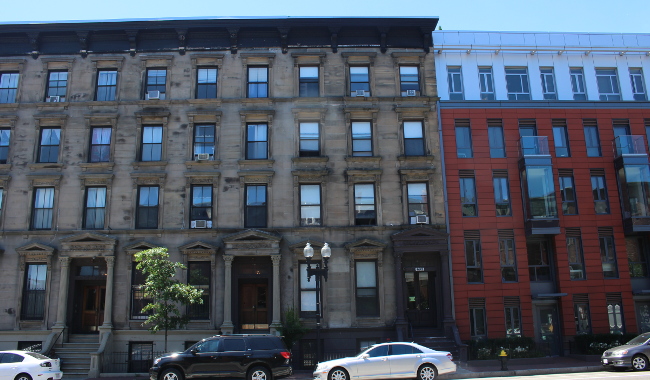
BOSTON – Massachusetts’ only halfway house exclusively serving women returning to the community after being incarcerated closed April 2, the latest in a wave of Boston-area reentry programs forced to close or dramatically scale back due to loss of funding.
McGrath House, a 35-bed residential reentry center in the South End, has provided case management and support finding housing, employment, counseling and other services to formerly incarcerated Massachusetts women for more than 40 years. Community Resources for Justice, a Boston-based nonprofit, started the program in 1975.
Due to tight budgets, referrals to the program from federal, state, and county corrections agencies have dwindled in recent years, forcing CRJ to close McGrath House. CRJ will establish a smaller number of beds for women in Coolidge House, a halfway house on Huntington Avenue that currently serves men coming out of prison.
“We’re committed to continuing to serve formerly incarcerated women and help them get started on a new path to healthy, productive lives in the community,” said CRJ President and CEO John Larivee said. “However, losing McGrath House as a standalone program for women is enormously disappointing and a setback for the region. Formerly incarcerated women face greater difficulty finding employment than their male counterparts and often have primary responsibility for caring for their families after their release. Having a program that focuses solely on supporting women as they face these obstacles leads to better outcomes.”
Last summer, McGrath House took on a new public face as a symbol for the often overlooked stories of incarcerated women and their perseverance when a Detroit-based artist used their stories as inspiration for a 45-foot tall mural on a building several blocks away from the program.
Massachusetts has lost many supports for reentry over the past 18 months: Span, Inc. closed in August 2017 after 40 years; Overcoming the Odds, a partnership with Boston Police, the Department of Corrections and community groups ended after three years; and the Boston Reentry Initiative drastically reduced its scope in 2016 after 16 years of operation.
Brooke House, a 65-bed halfway house also owned by CRJ that serves men returning to Boston neighborhoods, will be forced to close within the next several months without new funding.
With the loss of these services, Boston is facing a potential uptick in overdoses, homelessness, and crime.
This precipitous decline in reentry resources is a critical issue that has gone uncovered in the debate about criminal justice reform. People are often released from jail in the clothes they were arrested in. They often have no money, no legal ID, and no place to live. They end up in shelters, on the streets, or in unstable housing situations near negative influences they used to be involved with. If their family members live in public housing, they are banned from living with them. These factors contribute to the very high recidivism rate we have in Massachusetts – more than two-thirds of people leaving county jails and more than half of those released from state prisons in 2011 were re-arraigned within three years.
Participation in a residential reentry program can reduce recidivism by up to 25 percent for individuals assessed as having a high risk of re-offending.
Massachusetts spends less than $100,000 from its state budget on community-based residential reentry programs compared to $66 million in Ohio, $65 million in New Jersey, and $13 million in Michigan.
CRJ is working with stakeholders to underscore the importance of these supports to reduce recidivism and the negative impact on communities and to support a budget request from state Reps. Evandro Carvalho and Dan Cullinane to include $5 million in the fiscal 2019 budget for this kind of intensive, community-based reentry support.